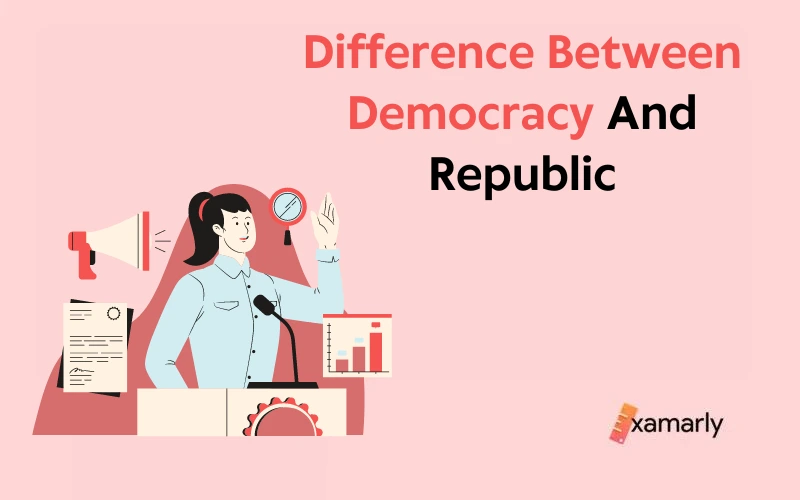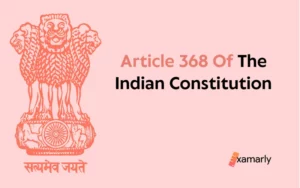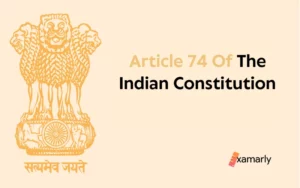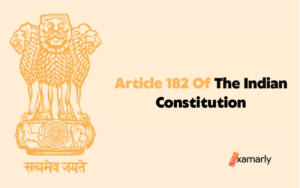Is there any difference between democracy and republic? This is one question that has lingered in the minds of many since these two types of government systems have been around for centuries.
Democracy and Republic are two different forms of government with distinct attributes. Both these systems have been in use across various countries for decades, but there is some confusion about the actual differences between them.
In this article, we will discuss the primary differences between a democracy and a republic to help clear up this confusion by laying out the characteristics of each individual system.
This article is helpful for the preparation for the civil service examination as “Democracy and Republic” is a significant component of the UPSC/IAS Exam Polity and Governance syllabus.
By understanding the key principles that define each form of government, we can better understand how they differ in structure and power distribution among the people.
- What Is Democracy?
- What Is Republic?
- Difference Between Democracy And Republic
- History Of Democratic And Republic
- Republics And Democracies In The Modern Day And Age
- Types Of Democracy
- Types Of Republic
- India: A Democratic And Republic
- Winding Up
- FAQs On Democracy Vs Republic
- What Is Republic?
- What Is The Definition Of Democracy?
- List Some Instances Of Nations That Practice Democracy Or Republic.
- What Is Included In The Democratic System?
- What Are The Main Distinctions Between A Republic And A Democracy?
- What Is The Most Important Parallel That Can Be Seen Between Republics And Democracies?
- Where Did The Term "Democracy" Originate?
What Is Democracy?
Greek terms “demos” (meaning “people”) and “Kratos” (meaning “power”) are the origin of the word democracy. Democracy can therefore be referred to as the “power of the people,” a system of government that is based on the desires of the people.
In its purest form, democracy refers to a form of government in which power is exercised on account of the populace and in accordance with their expressed “will.”
What Is Republic?
In a republic, the social and political issues facing the nation are treated as “public matters,” and representatives of the public keep the power to make decisions.
It comes from the Latin word res publica, which translates to “the public thing.”
Republics are different from direct democracies in that people exercise control over the government via elected officials.
However, republics constitute the vast majority of modern representative democracies.
The term “republic” can be used to describe not only democratic countries but also oligarchies, aristocracies, and monarchies in which the position of the head of state is not determined by hereditary succession.
In a republic, the populace elects representatives to create laws and an executive to put those laws into effect.
Even while representatives are still selected by the majority, minorities are protected from the arbitrary political whims of the majority by means of a formal charter that enumerates and safeguards certain fundamental rights.
In this context, the term “representative democracy” refers to republics such as the United States of America.
Check out the linked article to learn more about the Republic Meaning In Indian Constitution.
Difference Between Democracy And Republic
| Basis | Democracy | Republic |
| General Philosophy | A democracy gives its citizens control over how they are governed. On the other hand, in a democracy, the kings are considered to be a danger to the inalienable rights of the population. Every citizen has a voice in every choice the government makes. | The republics are opposed to the concept of one individual forming a government. In a republic, each citizen has an equal voice in governing matters, and the citizens’ elected representatives to hold the authority to carry out those roles on their behalf. The government upholds each person’s unalienable rights in order to preserve the interests of the minority. |
| Early Example | Athenian Democracy in Greece | Roman Republic (510 BC -27 BC). |
| Definition | In a democracy, the majority rule is upheld. Representatives can be elected by the general public. The interests of minorities are not accorded such protection. | Representative democracy is a principle that the Republic upholds. |
| Types | 3 types of democracy are there, namely: a. Constitutional Democracy b. Direct Democracy c. Representative Democracy | 5 types of Republics are there namely: a. Constitutional Republic b. Theocratic Republic c. Presidential Republic d. Parliamentary Republic e. Federal Republic |
| System | The democratic political system is what is practiced here. | It adheres to the Republican political system. |
| Who holds the power? | In a government based on democratic principles, the people themselves hold the reins of power. | Individual citizens hold sway in a Republic. |
| Social Structure | State-to-state differences in the social structure exist. Democracies oppose the system of class distinction on both a political and economic level. | The framework is not much dissimilar to that of democracies. State-by-state differences exist in the social structure in this area as well. The class division continues to be the major objective of resistance in both political and economic spheres. |
| Economic System | Democracies are free market economies with elected officials making policy decisions. | Representatives of the people decide what the policies are for free economic markets. |
| Freedom to press religion | Despite the fact that the majority is thought to impose their religious practices onto minorities, freedom of religion is granted in democracies. | Constitutional restrictions exist on interfering with others’ religious practices. Thus everyone has the freedom to practice whichever religion they so want. |
| Which Country follows? | New Zealand, Australia, etc. The United Kingdom is likewise a democracy, although one with a monarch. | The United States of America (USA) is a nation that adheres to a democratic republic. |
| Minus point | When majorities impose their will and judgments on minorities, they violate the rights of the latter. | There are ongoing arguments and impasses because minority rights are protected. |
| How Many A Country Can Have? | A nation may practice various forms of democracy. | It is possible for a single nation to have multiple republics. |
| Restriction | The government in a democracy has no restraints. | In a republic, the government is subject to limitations. |
| Focus | The will of the people as a whole is given the utmost importance in democratic systems. | The constitution is what a republic focuses on most. |
| Aim | Having unanimity of the people’s will is the basic goal of a democratic government. | Protecting and upholding the laws of the constitution is the republic government’s primary goal. |
Relatable Articles:
History Of Democratic And Republic
When we consider how far back into history we go, we find that democracies have been around for much longer than republics.
Nevertheless, it is not easy to pinpoint the precise first democracy that existed anywhere in the world.
There were numerous countries and tribes located all over the world that possessed some form of democratic or republican government.
Early Democracy: According to the archives, Athens, Greece, which was founded around 500 BCE, had the earliest democracy.
- The Athenians were required to vote on each and every law that the country passed.
- In this situation, the majority was seen to have complete authority over the laws and procedures, making it a true democracy.
Early Republic: According to the archives, the Roman republic, which was founded after the Athenian democracy in approximately 500 BCE, was the most ancient republic.
- During that time period, the Roman Republic operated on an unwritten constitution, which was designed to be flexible enough to accommodate the shifting values that were prevalent in society.
The republics have a special quality that defends minorities by enacting and applying laws.
In some circumstances, the US Constitution gives the US Supreme Court and lower federal courts the authority to make decisions on these issues.
Republics And Democracies In The Modern Day And Age
In our day and age, there is a great deal of discussion over the propagation of democracy; nonetheless, the majority of nations on earth are still governed by republics.
The delegate who serves as the head of state is directly chosen by the people in republics.
The legislature is chosen by the people, and it is responsible for deciding who will serve in the executive branch.
Types Of Democracy
Different types of democracy are discussed below:
Direct Democracy
The concept of direct democracy was first put into practice in Athens, which is located in Greece.
In this form of governance, the citizens were given the opportunity to take part in the decision-making process, and they were invited to do so.
In a direct democracy, the people of the country participate in making decisions and are given a number of authorities.
At this point in time, democracy of this form is not practiced in any country anywhere in the world.
Representative Democracy
In a system of government known as representative democracy, the members of the legislature are elected by eligible citizens in order for them to carry out the duties associated with governance (the nation possesses transparency, accountability, stability, empowerment, and inclusion, among other characteristics). Such democracy is also referred to as indirect democracy.
Australia is a country that practices representative democracy.
Constitutional Democracy
According to the definition of constitutional democracy, it is a form of democracy in which the constitution determines who will represent the country.
Australia, for instance, also has a constitutional democracy.
Monetary Democracy
Monetary Democracy is a brand-new type of democracy that is emerging.
The government will monitor both private and public organizations under this sort of democracy.
Types Of Republic
Different types of Republics are discussed below:
Parliamentary Republic
A parliamentary republic is a republic in which the parliament governs the nation/state. It is the responsibility of the people who represent the country to uphold the constitution. For instance, parliamentary republics include Canada, Italy, Great Britain, and others.
Constitutional Republic
A republic where the nation’s citizens elect the representatives is referred to as a constitutional republic.
People are required to abide by specified regulations outlined in the constitution.
The best illustration of this type of government is found in the United States.
Federal Republic
The term “federal republic” refers to a certain form of governance in which there is a “federation of states.” A federal republic is a union of states with republican forms of governance. The Federal Republic of Nigeria, the United Mexican States, the Republic of Austria, and others are examples of federal republics.
India: A Democratic And Republic
India is a democracy, but the people who wrote the Constitution of India had a different notion in mind when they were writing the Constitution of India.
In the meeting of the constituent assembly that took place on November 20, 1946, Jawaharlal Nehru put the word “republic” as one of the purposes of the Constitution rather than the word “democracy.”
When questioned about this, he responded that the word “Republic” had a broader connotation than the word “democracy,” but he could not explain the distinction between the two.
After a period of time had passed, the final version of the Constitution was written, and it omitted the word “republic” and added the term “democracy.” India was designated as a Democratic Republic in the constitution’s final version. The nation should have both democratic and republican characteristics, according to the Constitution’s architects.
It was suggested that India was declared a republic due to the fact that the British Monarch had previously served as its head of state.
Even if this was accurate, it wasn’t sufficient to support it.
Since the decision was made by the constituent assembly many years ago, pinpointing the actual reasoning behind it is challenging.
The deeper significance for the republic’s supporters is left unchanged; just the formal aspects of the republic are being emphasized.
Throughout the nineteenth century, a multitude of authors who were enthusiastic about the notion wrote about Indian and western republics from a diverse range of viewpoints.
Jotirao Phule, one of the Republics’ first spokesmen, wrote and applauded the spirit of love, equality, and dedication to the common good of the Republic.
B. R. Ambedkar shared the same perspective as Jotirao Phule, and he focused his attention primarily on the republics formed by the French and the Americans.
Ambedkar had the idea of turning India into a strong republic while he was a student at Columbia University. He did extensive reading and research on the subject of republics during that time.
The egalitarian ideals of the French Revolution of 1789 served as a significant source of inspiration for him.
In 1931, he founded the Independent Labour Party, subsequently known as the Republican Party of India.
Though this transpired after his passing, plans had already been set in motion.
All of these individuals, in addition to others, advocated for the republic form of government, and they shared similar perspectives on the subject. They had come to the conclusion that the republic and the idea of democracy coincided since they held essentially the same beliefs.
Winding Up
In conclusion, the difference between a democracy and a republic lies in the way power is held and exercised. Both structures allow for a certain sort of representative government, which unites them.
Democracy is a system of government where power is held by the people directly, through the medium of free and fair elections. On the other hand, a republic is a system of government where power is held by the people or their elected representatives, with a head of state, usually a president, as the leader.
Both democracy and republic are popular forms of government, but each has its own unique characteristics and strengths.
Ultimately, the choice between a democracy and a republic comes down to the specific needs and preferences of the people it governs.
The idea of democracy and republic may seem similar, but their implementation and governance are totally different, and choosing one over the other can have a significant impact on society and the nation.
FAQs On Democracy Vs Republic
What Is Republic?
A republic is a form of government in which the power is held by the people or their elected representatives, and the head of state is usually a president. In a republic, the government is based on the rule of law, and citizens have certain rights and freedoms. The United States is a republic, as are many other countries around the world.
What Is The Definition Of Democracy?
Democracy is a kind of governance that operates in accordance with the “will” of the people.
List Some Instances Of Nations That Practice Democracy Or Republic.
Democratic forms of government exist in nations including Nigeria, the United States, and India. On the other hand, countries like the Federal Republic of Nigeria, the Federal Republic of Germany, and the Argentine Republic have republican forms of government.
What Is Included In The Democratic System?
The democratic form of government involves choosing representatives, making laws, and acting on the opinions of the majority.
What Are The Main Distinctions Between A Republic And A Democracy?
Differences in the extent to which citizens are able to exert influence over the legislative process under Democratic and Republican administrations stand out as a major factor separating the two types of government.
What Is The Most Important Parallel That Can Be Seen Between Republics And Democracies?
Both republics and democracies provide a framework for government in which elected officials make a commitment to uphold and defend the rights of the people and to act as the people’s representatives.
Where Did The Term “Democracy” Originate?
The term “democracy” originates from the Greek terms “demos,” which equates to “people,” and “Kratos,” which refers to “power.”






